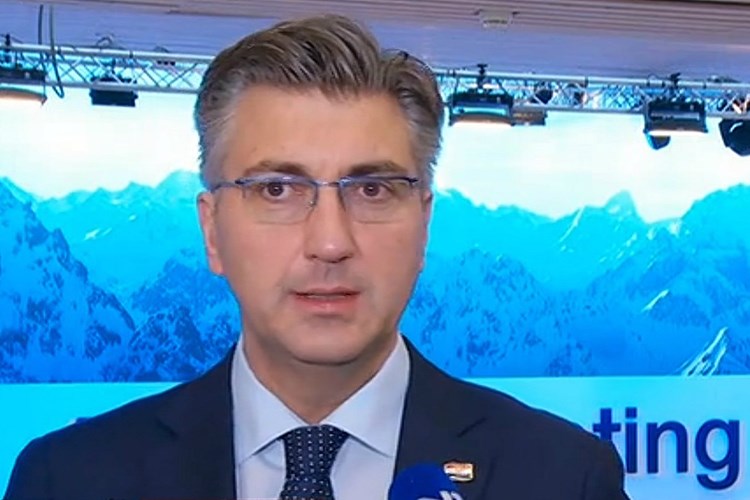- Published: 25.01.2019.
It is important that Agrokor operates on a market basis and that the settlement is completed
Croatian Prime Minister Andrej Plenkovic attended a panel on the Western Balkans as part of the World Economic Forum in the Swiss ski resort of Davos on Friday.
The focus of the panel was on regional stability, boosting trade and competitiveness, and joining the Fourth Industrial Revolution.
This panel, like the two the Croatian prime minister attended on Thursday, was held behind closed doors. Among those attending were Macedonian Prime Minister Zoran Zaev, Bosnia and Herzegovina's Prime Minister Denis Zvizdic and Serbian President Aleksandar Vucic.
After the panel, Plenkovic is scheduled to hold bilateral talks with Zvizdic, Irish Prime Minister Leo Varadkar and Swiss President Ueli Maurer.
Prime Minister Andrej Plenkovic said on Friday he had no information that Russia's Sberbank planned to sell its stake in Croatia's Agrokor conglomerate in the first half of this year.
Sberbank vice president Alexander Vedyakhin said yesterday, according to Russian news agencies, that the bank planned to sell its stake in Agrokor in the first half of 2019 and that negotiations with interested buyers were under way.
Sberbank is Agrokor's biggest creditor and, under last year's settlement, its biggest shareholder with a 39.2% interest.
"There's no long term logic in someone whose business is banking co-owning a company whose business is agriculture, food and retail," Plenkovic said in Davos. "But for now, we have no information about a sale."
To the government it is important that the settlement be carried through, that Agrokor functions and that people are employed, he added.
We don't support anything which causes instability in BiH
On the fringes of the World Economic Forum (WEF) in Davos, Plenkovic met with Bosnian PM Denis Zvizdic, which was their first meeting after last October's general elections in Bosnia and Herzegovina.
Plenkovic said they talked about government formation in BiH, a reform of its election law, as part of which he said Croat equality was key, and Croatia's support for reforms aimed at bringing BiH closer to the European Union.
Commenting on the Bosniak Party of Democratic Action motion for assessing the constitutionality of the Bosnian Serb entity's name, Republika Srpska, and Bosnian Serb official Milorad Dodik's response to that and threats that the entity would separate from BiH, Plenkovic said Croatia wanted peace and stability in its neighbourhood. "We don't look favourably on initiatives that can bring that in question."
Dodik has made similar statements before, "but it's important that everyone does the part they have in line with their authority," he said, adding that Croatia respects BiH's territorial integrity.
Brexit - the prospects aren't rosy
Speaking of today's meeting with Irish PM Leo Varadkar, Plenkovic said Croatia was following the turbulence in British politics related to Brexit. "We see that Prime Minister May is fighting to reach a kind of consensus in parliament for the adoption of the withdrawal deal, but the prospects aren't rosy."
A no-deal Brexit would be the worst scenario and everything should be done to avoid it, Plenkovic said.
"Ireland has certain red lines which it has highlighted, i.e. the backstop option to avoid a hard border between Ireland and Northern Ireland. That's vital to them and everybody in the EU understands it," he said, reiterating that the ball is in London's court.
Croatia - Centre for the Fourth Industrial Revolution?
Plenkovic reiterated that Croatia was interested in the WEF's Centre for the Fourth Industrial Revolution being built in it.
"There's still no decision on where it will be, but we have expressed our willingness and interest," he said, adding that WEF representatives will be invited to Dubrovnik in April, where Croatia will host a China + 16 summit.
He said that in May 2020, when chairing the Council of the EU, Croatia would host a summit of EU and southeast European countries at which a road map was expected to be defined to give the region's countries clear enlargement prospects as well as underline the importance of meeting membership requirements.
Text: Hina
